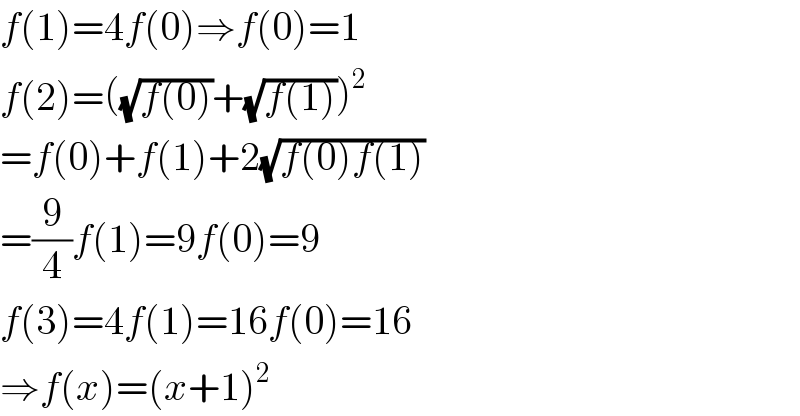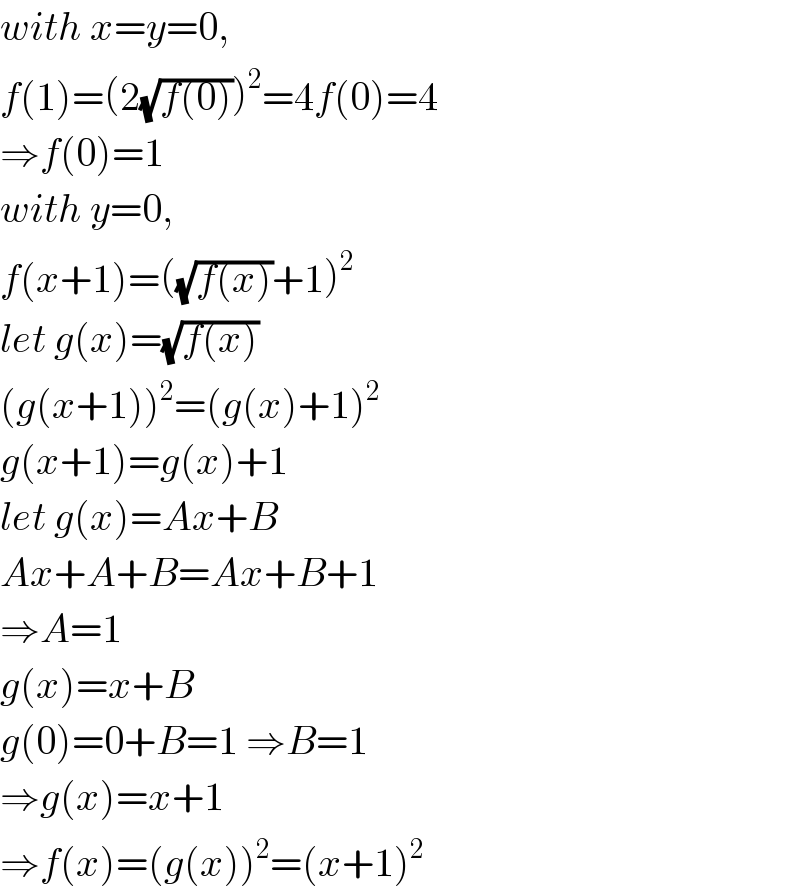
Question and Answers Forum
Question Number 83035 by bshahid010@gmail.com last updated on 27/Feb/20

Commented by Tony Lin last updated on 27/Feb/20

Answered by mr W last updated on 27/Feb/20

| ||
Question and Answers Forum | ||
Question Number 83035 by bshahid010@gmail.com last updated on 27/Feb/20 | ||
 | ||
Commented by Tony Lin last updated on 27/Feb/20 | ||
 | ||
Answered by mr W last updated on 27/Feb/20 | ||
 | ||
| ||